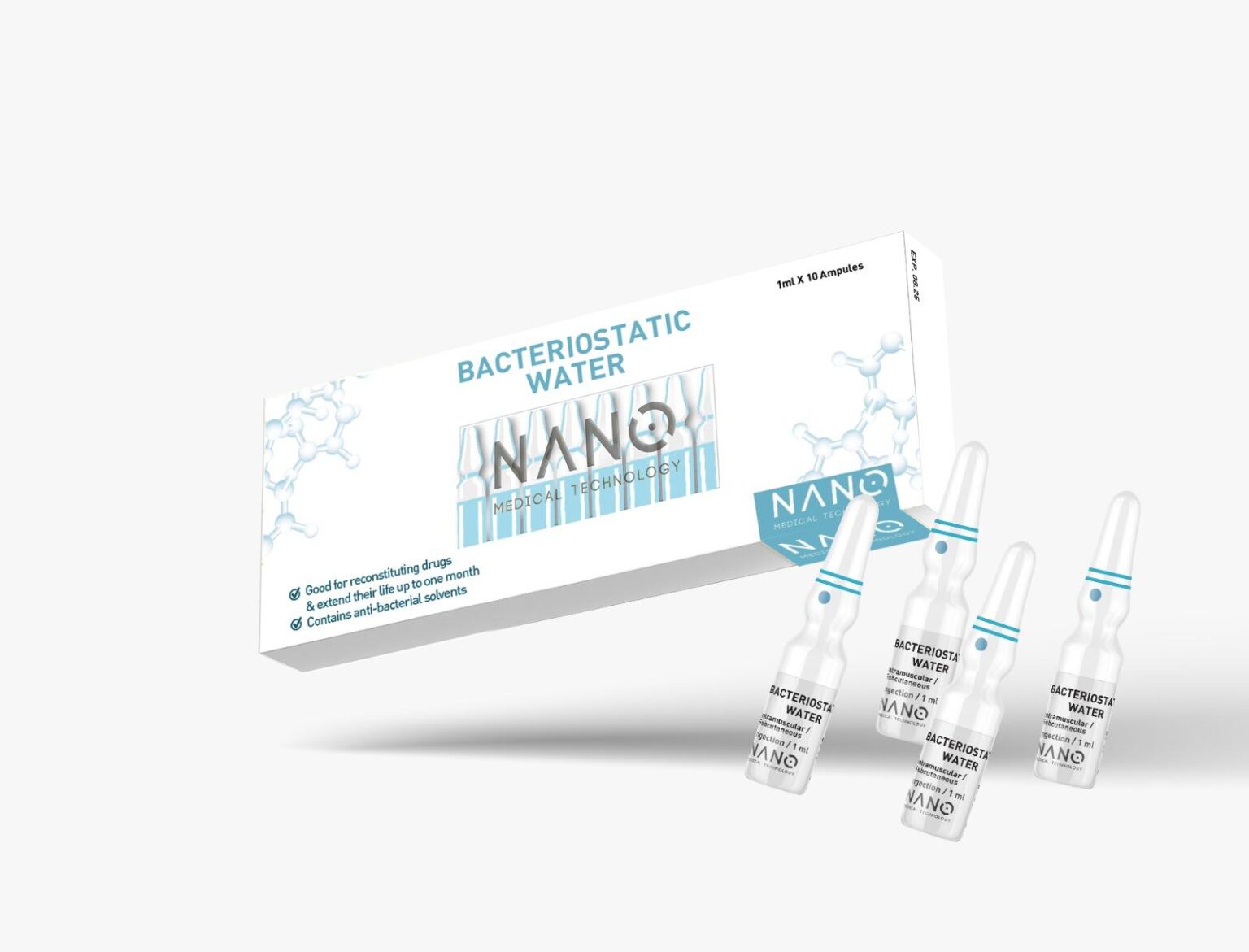Sterile-Water
Definition:
Bacteriostatic Water is a sterile solution used primarily to dissolve or dilute medications for injection. It
contains water that is treated to prevent bacterial growth, thanks to the addition of a bacteriostatic
agent, typically benzyl alcohol.
Components:
Sterile Water: Purified water that is free from any contaminants, used as a base for the solution.
Benzyl Alcohol (0.9%): A preservative added to prevent the growth of bacteria and extend the
usability of the solution once it has been opened. Uses:
Reconstitution of Medications:
Often used to dissolve or dilute injectable drugs that come in powder form. This makes it possible to
inject medications that require mixing before use.
Dilution: Used to adjust the concentration of injectable solutions to the desired dosage.
Benefits:
Prevents Contamination: The benzyl alcohol helps to inhibit bacterial growth, ensuring that the
solution remains sterile for a longer period once it has been opened.
Extended Shelf Life: The preservative allows for a longer period of use compared to non-bacteriostatic
solutions.
Administration:
Injection Preparation:
When preparing medications for injection, Bacteriostatic Water is added to the medication vial to
achieve the correct concentration. It is essential to use sterile techniques to avoid contamination.

